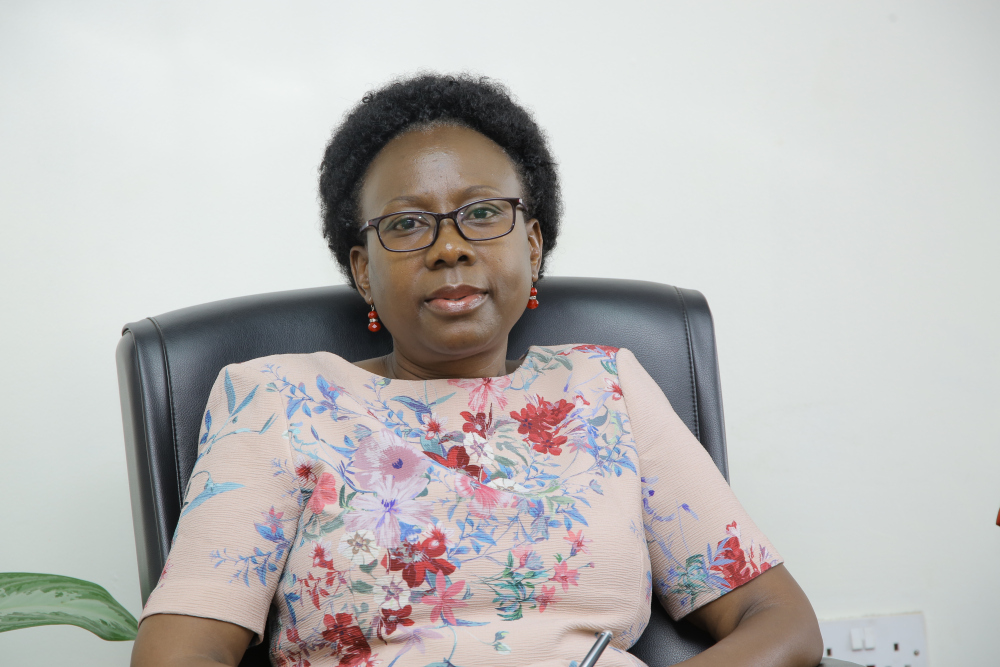
The Minister for Health Hon. Dr. Jane Ruth Aceng on Wednesday, September 2nd, 2020, officially inaugurated the Board of Directors (BOD) for the Malaria Free Uganda project.
The campaign was rolled out by the Ministry and is aimed at distributing free mosquito nets and sensitizing all Ugandans on how to fight malaria, which is one of the top killer diseases not only in Uganda but across the African continent.
During the function that was officiated over by Hon. Jane Ruth Aceng as the guest of honor, the new members of the BOD were officially unveiled and later sworn in, such that they can start executing their duties in this venerable service to their country.
The Minister revealed that globally, Uganda ranks as one of the countries with the highest malaria prevalence especially among children and pregnant women.
Below is part of Minister Jane Ruth Aceng’s Speech during the inauguration ceremony;
“Today, we are here to launch the board of Malaria Free Uganda – an important milestone in our fight against Malaria.
As you may all be aware, Africa is home to the largest number of Malaria cases (93% of the global burden), a treatable yet preventable disease. Malaria continues to claim the lives of more than 405,000 people each year, largely in Africa.
Around 85% of the estimated case burden and 85% of the estimated deaths occurred in 10 countries in sub-Saharan Africa (Burkina Faso, Cameroon, Democratic Republic of the Congo, Ghana, Mali, Mozambique, Niger, Nigeria, Uganda and United Republic of Tanzania) and India.”
Malaria Burden in Uganda
According to the World Health Organisation (WHO), Uganda has the third-highest number of malaria cases globally (5% of global total).
In 2018, there were 5.8 million confirmed cases of malaria. Between 2016 and 2018, a case of malaria was confirmed on average every 3.5 seconds. This burden reduces the ability of health facilities to absorb new health threats, such as COVID-19.
In Uganda, malaria is responsible for 30-40% of outpatient visits, 15-20% of hospital admissions, and up to 10% of inpatient deaths.
Children under the age of five years old are at the highest risk, accounting for two-thirds of malaria deaths globally.
Pregnant women, who are unable to take the most effective antimalarials, are also particularly vulnerable. Yet, the percentage of pregnant women receiving preventative care (IPTp) remains low despite an increasing number seeking antenatal care.
On average, malaria causes 37% of workforce illness and absences and costs Uganda more than 22 million days of work per year. This is the equivalent of removing 90 thousand workers from the labor force each year. Malaria reduces Uganda’s economic resilience and ability to recover.
Rural households spend up to 25% of their annual income-seeking treatment for malaria, resulting in decreased economic stability and an increase in poverty.
Despite this heavy burden, significant progress has been made over the recent past due to strong political leadership and commitment from H.E the President, Parliament of Uganda, and substantial investment in malaria control.
Reported malaria cases declined nearly 45% from about 16,000,000 in 2013 to 6,500,000 in 2018, with parasite prevalence in children <5-years reduced from 42% in 2009 to 19% in 2014 and 9.1% in 2018. These gains are however fragile as evidenced by malaria resurgence in 2016, especially in Northern Uganda.
Funding
According to the World Malaria Report, in 2019, an estimated US$ 2.7 billion was invested in malaria control and elimination efforts globally by governments of malaria-endemic countries and international partners.
It was noted that this level of investment is far from what is required to reach the first two milestones of the GTS; that is, a reduction of at least 40% in malaria case incidence and mortality rates globally by 2020, compared with 2015 levels.
To reach the GTS 2030 targets, it is estimated that annual malaria funding will need to increase to at least US$ 6.6 billion per year by 2020. This, therefore calls for an urgent and intensified political and technical response from high burden countries supported by partners.
In response to this heavy burden of disease due to malaria, the Government of Uganda’s (GoU) National Malaria Control Division (NMCD) has adopted a multi-faceted approach to malaria control and prevention that is embodied in the Uganda Malaria Reduction and Elimination Strategic Plan (UMRESP) 2020/21-2025/26. The vision of the UMRESP (2020-2025) is to have a “MALARIA FREE UGANDA”.
As long as Malaria remains a serious public health problem in Uganda, we shall continue to see stagnant economic growth and social development in our country.
However, the National Malaria Control Division faces a three-year US$206 million budget gap (33% of the total). 95% of available funding is donor-supported by increasing expectations for domestic resourcing.
Malaria Free Uganda Fund Board
Malaria Free Uganda is a non-profit, public-private partnership established to mainstream responsibility for malaria across all sectors and help remove financial and operational bottlenecks faced by the National Malaria Control Division and its partners.
The talent and experience we have mobilized to this board from the private and civil society will help the government achieve a significant reduction of malaria cases and deaths in Uganda.
Key Board responsibilities and response to achieve the mission. To fulfill this mission, MFU will mobilize—
1. Advocacy for malaria to be a strategic priority across all sectors—public, private, and civil society—and at all levels from the head of state down to the head of household;
2. Resources and action, both in-kind and financial, to close the budget gap and enable the full implementation of the national malaria strategic plan;
3. Technical assistance to improve the sustainability of the fight against malaria; and
4. Mutual accountability for making and implementing impactful commitments that will help achieve a malaria-free Uganda.
As MFU, how can we work together achieve the targets we have not attained?
For us to accelerate to a 2020-2030 Malaria free Uganda we are asking ourselves these questions
i) What have we done well?
ii)What have been our success factors?
iii) If we have failed, where can we learn from our past and present experiences to accelerate progress?
Uganda is prepared to come –out of the TEN HIGH BURDEN Malaria countries. To achieve that, we need to consciously work within the health systems strengthening frameworks to sustain the emerging gains.
The Government of Uganda wishes to acknowledge the support and contribution from all donors and stakeholders who have continued to contribute in one way or another to end malaria.
I wish to thank the MFU Board members and leadership, World Health Organisations (WHO), the colleagues from the Ministry of health, ALMA, RBM Partnership, DFID /UKAID and USAID, and development partners that have provided support to this meeting. We are grateful for your support.
Finally, I would like to call on everybody to embrace the vision of ‘A malaria-free Uganda’. Let us all unite in the fight against malaria, without your commitment we cannot have a malaria-free Uganda by 2030.
It is my singular pleasure and honor to declare Malaria Free Uganda Board of directors launched.”







